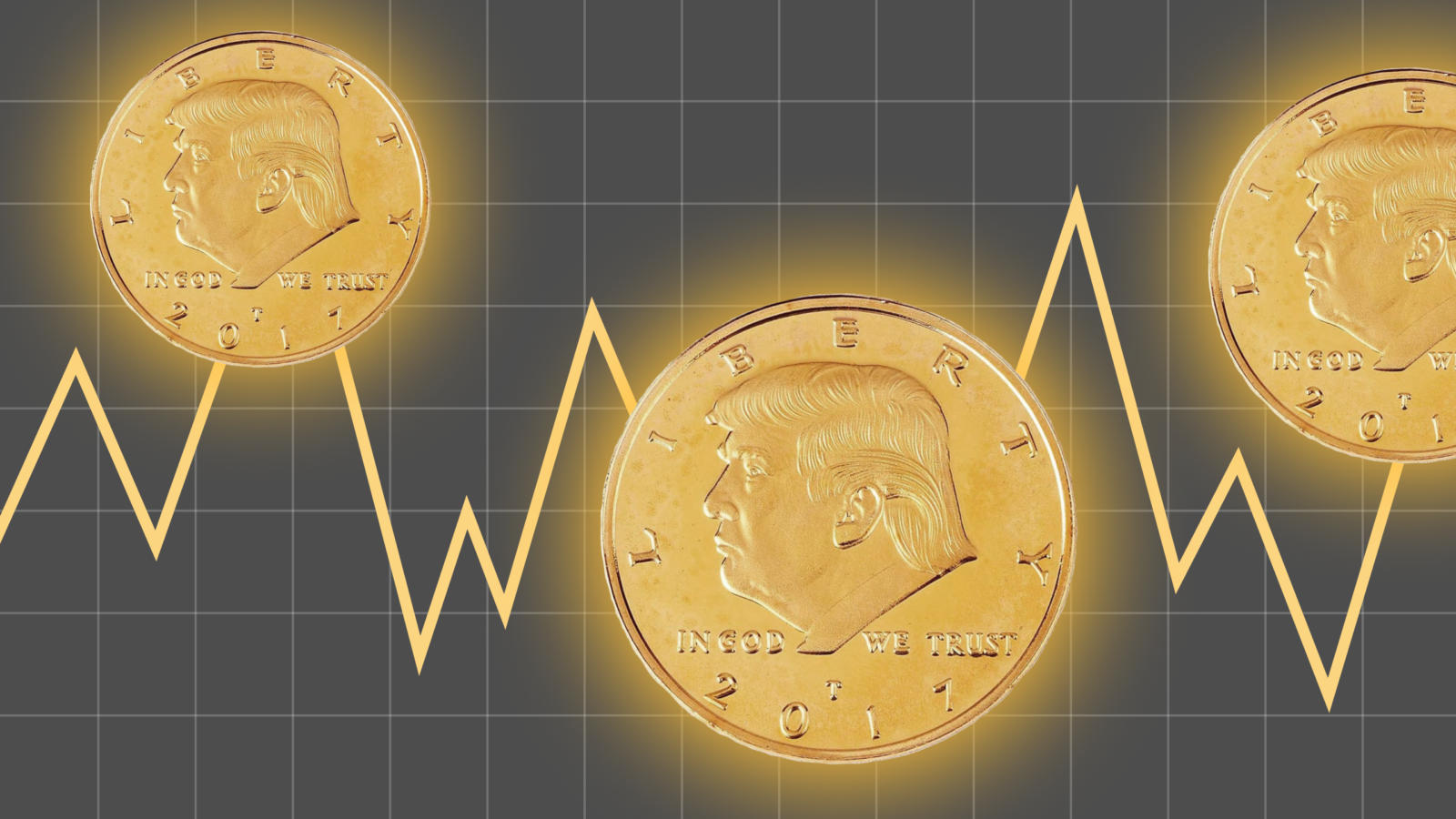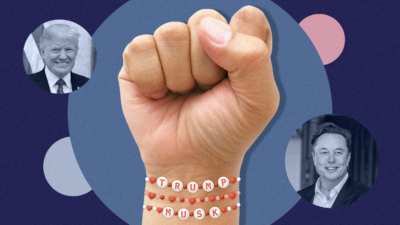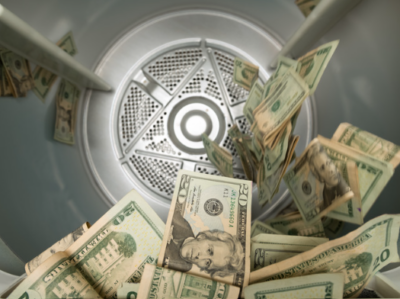
Sign up to unveil the relationship between Wall Street and Washington.
America’s top-rated television network, Fox News, in an 11th-hour move to dodge what would have been an embarrassing show trial, settled its defamation case with Dominion Voting Systems for $787.5 million – less than half the amount it was sued for – while admitting some of the claims it reported about Dominion were “false.” The settlement came late Tuesday just after the jury was sworn in.
The deal has been years in the making, with a lot of big names at Fox – Tucker Carlson, Maria Bartiromo, Laura Ingraham, Sean Hannity and their 92-year-old boss, Rupert Murdoch, chairman and chief executive of Fox’s parent company New Corp. – in the crosshairs.
Dominion Voting Systems, which is majority-owned by a $900 million private equity firm based in New York called Staple Street Capital, sued Fox in a $1.6 billion defamation lawsuit accusing the television network of relentlessly airing false election-fraud stories and repeatedly suggesting Dominion’s voting machines were to blame. Opening arguments were set to begin on the case this week.
In a weird way, this moment is slightly redolent of the takedown of the online news and gossip site Gawker Media in 2016. Not because the details of the cases are at all similar, but because, like Gawker, plenty of journalists look down their noses at Fox, yet didn’t want to see it gutted, as it would have had massive implications for press freedoms (very fashionably always under attack), first amendment rights and journalism everywhere.
In the Gawker case, billionaire Silicon Valley investor Peter Thiel secretly funded pro wrestler Hulk Hogan’s case against Gawker when the media company published a video of Hogan having sex with his best friend’s wife.
Aside from the fact that publishing the video was utterly lurid and had zero news value, it was unclear what posting it added to the world. It brought no insight or deeper understanding to a general news audience. So why was it published? This was the question on many journalists’ minds at the time, even as they did not wish to see a fellow news organization get destroyed and bankrupted – which ultimately is what happened.
The trial of Gawker weighed the right to privacy against press freedoms and, because of that, the entire undertaking effectively put the press on trial. The jury found Gawker had violated Hogan’s right to privacy and that he’d suffered emotional distress.
Perhaps the greatest sin of it all was that the video itself had no real meaning, except maybe to the people in it, and did not appear to meet any reasonable standard of public interest (unless you want to count salacious interest). In the end, it seemed senseless and bizarre to publish it. Also senseless for so many journalists to lose their jobs in the fallout.
In the case against Fox News, the stakes were even higher. All journalists’ press freedoms hung in the balance. The decision by Fox to run with the notion that the 2020 presidential election was rigged – and keep the story going for months afterward without any evidence – not only once again tested the outer limits of press freedoms, but inevitably caused many to question whether some journalists have completely lost the plot.
The private text messages of Fox anchors and executives, subpoenaed and released in the run-up to the trial, prompted even hardened news veterans to shake their heads in disbelief. The internal communications showed that even Fox’s top brass felt increasingly uncomfortable with the election-fraud allegations and, notably, wondered if it had any leg to stand on. It also revealed a culture inside Fox that openly sought to manipulate the perceptions of its conservative audiences to boost ratings, particularly in appearing to support former president Donald J. Trump, when it in fact did not.
In the texts, Fox anchor Tucker Carlson, speaking of Trump, wrote: “I hate him passionately…What he’s good at is destroying things. He’s the undisputed world champion of that.” Carlson also noted that Fox was knowingly interviewing sources on air it knew to be lying to viewers about the election, adding, “it’s insane.”
Rupert Murdoch, writing to Fox’s CEO, mused that perhaps the network’s claims of election fraud were not such a great idea, saying of Fox anchors, “Maybe Sean [Hannity] and Laura [Ingraham] went too far.”
Murdoch also made it clear what he really thought of Trump in another pointed internal note. “Trump insisting on the election being stolen and convincing 25 percent of Americans was a huge disservice to the country,” he wrote, even as Fox kept pushing the election-fraud stories. “Pretty much a crime. Inevitable it blew up Jan. 6th. Best we don’t mention his name unless essential and certainly don’t support him.”
That admission by Murdoch appeared to show that, as a network, Fox believed the election-fraud story was a lie, and it went all the way to the top. Still, Fox anchors continued to air allegations of vote-rigging, voter irregularities, vote-flipping and computer glitches, implicating Dominion and calling for a systemwide audit even after the 2020 election was over.
In its defense, Fox sought to portray its reporting as an attempt to cover what it saw as newsworthy allegations about the election in the public interest. It also held that its broadcasts and commentary were protected by the First Amendment.
Yet journalists learn early and often in their careers: You can quote somebody or put them on air, but if you have reason to believe that what they are saying is not true, then that’s on you. Spoken words, written words, or quotes are not tantamount to blank checks.
This is where the legal definition of “malice” comes in. It is a strong word, traditionally denoting an intention or desire to do evil, or having ill will. The legal version of it is notoriously difficult to prove, as established by the 1964 Supreme Court ruling, New York Times v. Sullivan, which propounded that defamation lawsuits brought by public figures against media companies must prove “actual malice.” In this case, the plaintiff, Dominion, needed to show the defendant, Fox, knowingly lied and either knew what it was saying was false and defamatory, or had serious doubts about what it was alleging and acted with reckless disregard for the truth.
From the start, the news network struggled to win over the judge overseeing the case, Eric Davis of the Delaware Superior Court. Davis ruled that Fox’s on-air claims suggesting Dominion rigged the vote were not true, so Dominion didn’t need to prove Fox’s allegations were demonstrably false. This week Fox also was sanctioned by the judge after he found Fox made misrepresentations to the court about Murdoch’s role as an officer at Fox News, which Dominion argued had the effect of delaying the submission of evidence about Murdoch.
In addition, Murdoch stated during a deposition that he wasn’t an officer at Fox News, which Dominion pointed out was not true. Judge Davis said he might need to appoint a special master to get to the bottom of what happened, stating, “I need people to tell me the truth…and by the way, omission is a lie.” Fox submitted a letter apologizing to the court calling the issue a “misunderstanding.”
Fox’s internal, private communications, specifically examined against what its anchors and sources were saying on air at the time, may have been the reason Dominion prevailed before the trial began. But the fact Fox dared to take it this far certainly does no favors for journalists or journalism.
*Power Corridor is the newest publication from The Daily Upside. Delivered twice weekly, Lead Editor Leah McGrath Goodman gives readers a unique view into the interplay between Wall Street and Washington. Sign up for free here.*
The views expressed in this op-ed are solely those of the author and do not necessarily reflect the opinions or policies of The Daily Upside, its editors, or any affiliated entities. Any information provided herein is for informational purposes only and should not be construed as professional advice. Readers are encouraged to seek independent advice or conduct their own research to form their own opinions.











